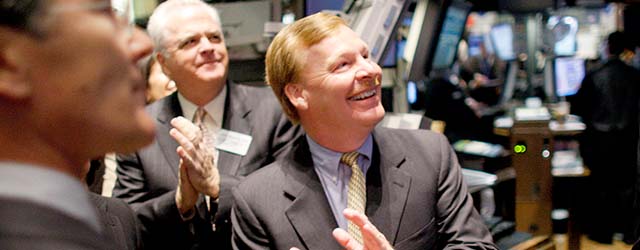Edward Breen earned his reputation breaking up Tyco, so it’s no surprise that he’s hit the ground running since taking over at DuPont last October as interim CEO, a position made permanent a month later.

“Mr Breen moved fast and masterminded a historic merger with Dow Chemical within months of taking over. We applaud his out-of-the-box thinking, since a deal with Dow was widely reported to have been rejected by two prior CEOs at DuPont,” says Citigroup analyst PJ Jukevar.
Breen has announced cuts of $730 million in 2016 ahead of the merger to help mitigate a slumping agricultural sector, a collapse in commodity prices and a stronger US dollar.
The merger with Dow to form DowDuPont will lead to an eventual split into three companies: agriculture, material science and specialty products. And the combination of DuPont and Dow’s farm pesticide and seed sales will create a formidable competitor in the agricultural industry, pressuring Monsanto to renew talks with Syngenta, Jukevar thinks.
The Dow-DuPont merger is expected to close in the second half of the year; the eventual split into three parts could take another 18 to 24 months. German chemical firm BASF is said to be mulling a counter-offer, but it’s doubtful they’d be able to raise the necessary funds, including the massive $1.9 billion breakup fee DuPont would have to pay Dow for backing out of the deal.
“Investors shouldn’t underestimate the potential cultural issues in combining two companies with long histories,” Jukevar notes. But top management seems strongly committed to both the merger and the split, he says.
The deal could improve both firms’ overall position, allowing the combined entity to leverage complementary products, suggests Jukevar. For example, he says, “Dow makes products for auto exteriors and technologies that enhance the comfort of the passenger within the vehicle. Dow’s specialty adhesives augment durability and overall performance on the exterior, while its polyurethane solutions enhance acoustic management. DuPont, meanwhile, complements Dow’s portfolio by providing products that work under the hood.”



